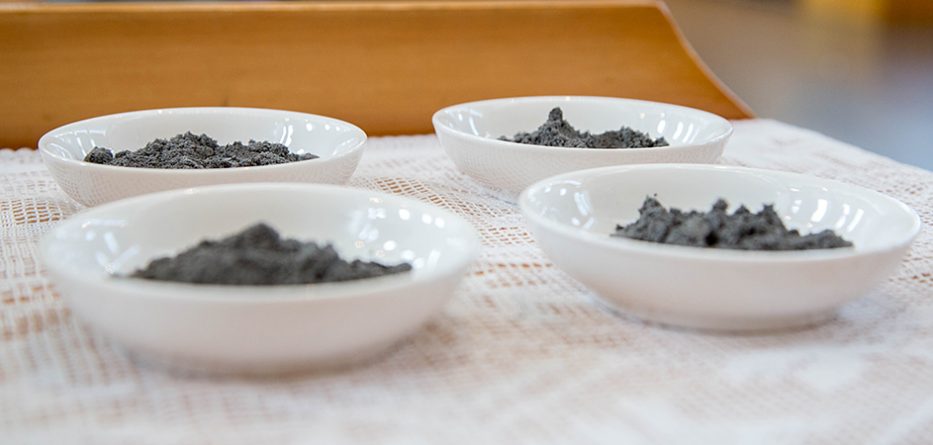17 February is Ash Wednesday
During the last year, we have become used to see unchanging religious celebrations disrupted by the coronavirus. Masses celebrated virtually, funerals limited to family, social distancing and masks in church, no sharing of the cup, nor peace greeting by shaking hands, for example. Ash Wednesday is also affected. The celebrant is instructed not to use ash to make a sign of the cross on our foreheads, but to sprinkle it on our heads.
Although that’s a small change, the gesture has quite a different feel. Making the sign of the cross on the forehead was like pinning a badge on us. It identified us as Catholics, gave us an identity as a follower of Jesus, and bound us to the community. When we were children, we were encouraged to leave it on our foreheads and not to be ashamed of our faith. We noticed adults who also had ash on their forehead as we travelled by bus to school. On Ash Wednesday, we strode together into Lent as we might into an army training camp that would make us spiritually fit to join Jesus on his path to death and rising.
Having ashes sprinkled on your head feels quite different. No one notices the ashes except ourselves. We may feel the grittiness in our hair and may BE uncomfortable with it. For most of us, paying attention to our hair is a sign of self-respect, and we expect others to pay our hair respect. It matters to us that if our hair is cut, washed, shampooed and combed, and we are pleased if other people notice it. It is also a sign of our distinctive identity, whether we have it cut carefully or leave it long and untidy. Either way, we are resentful if others pull it, pat it without permission, cut it or disrespect it. Our hair displays the person we believe we are, would like to be and want others to see.
For that reason, to have someone throw ash and dust into our hair is humiliating. Actually, humiliation is the point of the ritual. The Latin root of humiliation means dirt. If we are humiliated we feel as if we have been thrown down into the dust, dirtied. We lose the protection of the public person we want to be and are thrown back on to our naked self. The traditional formula that is used in the giving of ashes on Ash Wednesday expresses this clearly: Remember that you are dust and that unto dust you will return.
The emphasis on Lent as a time for stripping off all the things that give us importance and status is chastening. Like other forms of humiliation, it may also be crushing – unless we are confident that we are deeply loved. And of course, God’s overwhelming love for us is the larger story behind the sprinkling of the ashes on Ash Wednesday. It introduces the story of God’s relationship with us, as story that is developed throughout Lent. It tells how God loves each of us deeply enough to join us, share our joys and sorrow, bear our hatreds to the lengths of enduring torture and execution, and then rising to overcome death and murderousness. It is the story of Jesus’ acceptance of humiliation out of love for us and rising to glory. It marks out the path we shall walk if we follow Jesus.
Fr Andrew Hamilton SJ writes for Jesuit Communications and Jesuit Social Services.








